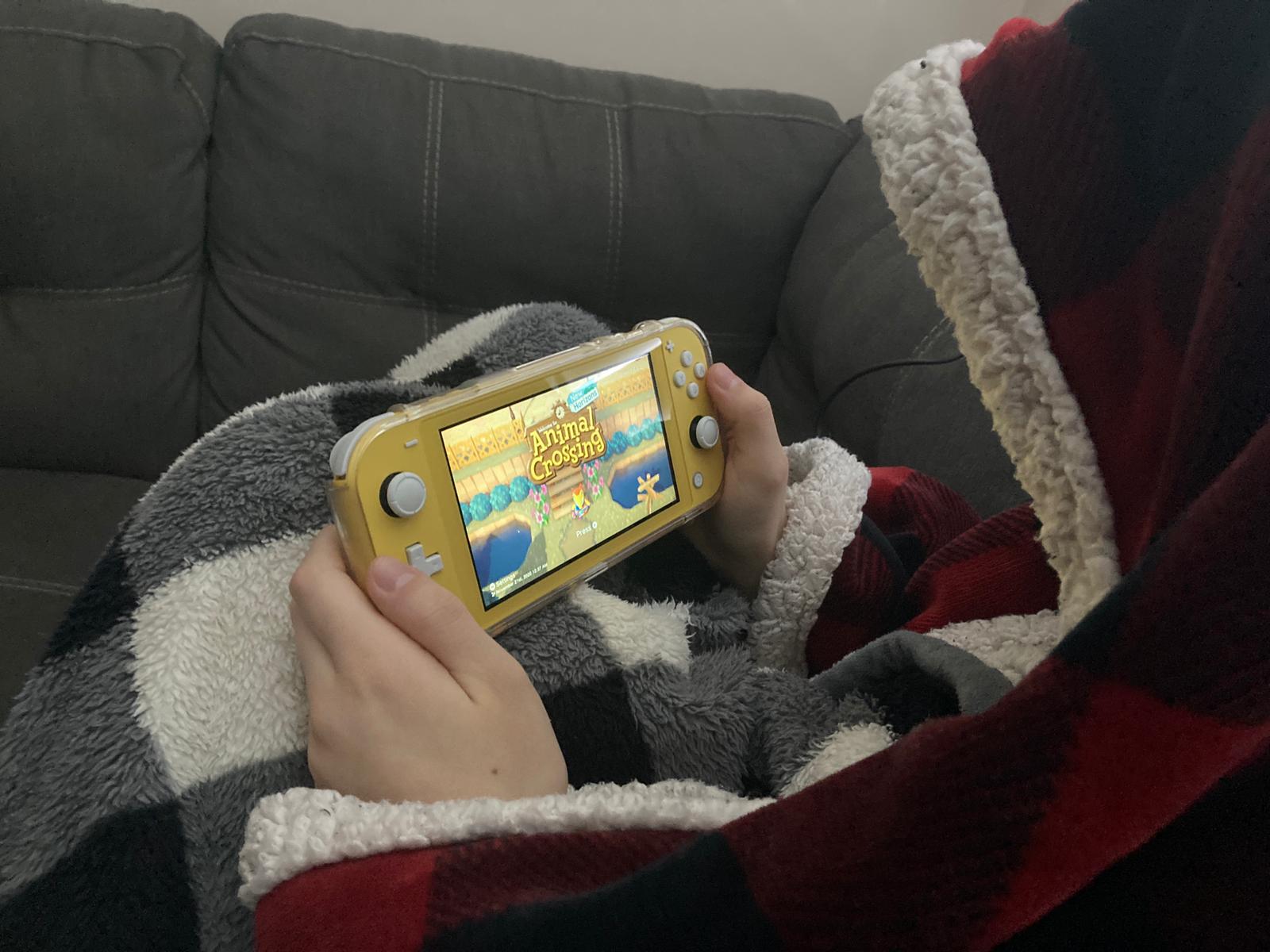Video games have had a checkered past, to say the least. The medium has been in the spotlight of controversy, raising issues of addiction, the portrayal of women, and even — surprise, surprise — violence. While the market has seen its fair share of violent video games supposedly influencing violent behaviour, remember kids, correlation is not always causation.
But we know this already. Society has evolved since those controversies, and so have video games. Some would argue that society has evolved to a point where we rely on video games simply to keep us sane — how’s that for a 180, Illinois representative Marcus C. Evans, Jr.
The current pandemic (dare I mention the mere name of the damned virus in yet another article) has caused the world to shift, and for many — if not most — this means a huge lifestyle change. For some, isolation creates a void, working from home creates endless bouts of stress, and never physically seeing your friends and family creates anxiety.
Video games can play a key role to fill that void, ease that stress, and calm that anxiety. They can help us cope with some of the troubles brought on by the pandemic, and in doing so, maybe they can redeem themselves in the public eye.
So, let’s reassess how video games have impacted our lives over the past year.
Part I: Lockdown

(Photo Credit: Tenor)
As the world shifted to a work-from-home format, daily habits and rituals surely changed as well. Rather than driving to work or bussing to school, all people had to do was open their laptops or log in to their computer and BAM — Bob’s your uncle. In light of this, everybody had more free time to enjoy hobbies, and for some, this meant more game time.
Emir Cetinalp, a second-year computer science student, found himself more willing to try new games that he wouldn’t have had time to play before the pandemic, claiming to have beaten three 60- to 80-hour-long JRPGs (Japanese role-playing games).
Other people found the limitations of staying inside a factor in their game-playing decision.
”Since going outside wasn’t an option, playing classic and slightly new games were the primary form of entertainment I had,” says Dylan Ateba, a third-year cinema and media studies student. Ateba’s play time has also increased due to the pandemic, further stating, “there isn’t much else for me to do when I’m stuck at home.”
Curing boredom wasn’t the only problem video games aided, as they also helped people cope with the emotional side effects of isolation.
“For me, gaming is something I do to de-stress,” says Ammara Khalid, a fourth-year physics student. “Even if it is playing an intense game, playing games helps me forget everything around me and allows me to solely focus on the game. It helps to relieve stress and just shut out the outside world. It’s like an escape from reality.”
Ateba attests to this, and says he uses video games to distract himself from the world around him, while helping him deal with his anxiety.
Not everybody is affected by the pandemic in the same way, as some folks found themselves gaming less than they did when the world was “normal.”
James He, a fourth-year human resources management student, found it difficult to escape any nearby electronic screens. “Gaming wasn’t as cathartic as reading a book nowadays,” he says, “which I hated doing when growing up.”
Part II: New Horizons

(Photo Credit: Rebloggy)
The end of March 2020 was when the pandemic took the world by storm, with countries enforcing a lockdown to their residents. At around the same time, the world saw the release of Animal Crossing: New Horizons, Nintendo’s latest life simulator, which also took the world by storm — but in a much different way.
New Horizons, just like the virus-that-tires-me-out-every-time-I-write-it, has infected millions of people around the world. But instead of giving them mild to life-threatening symptoms of illness, the game gave them a community.
“New Horizons came out at the perfect time for the pandemic,” says Cetinalp. “Being a massive Nintendo intellectual property that has not had a mainline game since 2012, it was going to be successful regardless of the release timeframe. The pandemic simply increased the extent to which people wanted to play it.”
For fifth-year professional writing student Michelle Clevett, New Horizons’ hit success comes as no surprise. “I think it definitely makes sense,” she says. “It’s a simple game that doesn’t take a lot of technical skill to play, so it’s very accessible, and it also has a multiplayer element so that people can enjoy it together.
“During the lockdowns, many more people have many more hours of free time to play games, and they are also missing a lot of connections to their friends and family. Games like Animal Crossing help cope with and temporarily fill both needs.”
“Since people couldn’t see their loved ones and couldn’t go outside to hang out with their friends they did it virtually through Animal Crossing,” continues Khalid. “The game created this sense of community and let people have this social interaction that they could have otherwise had if there was no pandemic.”
While it may not be surprising, yet also perfectly timed, New Horizons was the ultimate escape that captivated its player base. In a time where many of us panicked to buy toilet paper, others nonchalantly collected butterflies — you tell me which sounds like the better world.
Part III: Community

(Photo Credit: The SuperHeroHype Forums)
When we think of toxic online communities, video games happen to be on that list — and rightly so. The gaming community has seen its fair share of toxicity, where much of it still openly displays racism, misogyny, and even death threats — these tend to be the loudest voices, which don’t speak for the whole group.
The gaming community, much like any other hobby-based community, is populated by sub-communities. Jules Quinto, fifth-year professional writing student, says it’s these sub-communities that create an “automatic shared interest among people.”
“I was able to reconnect with members of a small community of a niche social deduction game,” says He. “As I talked with them, I began to realize that I wanted to play a variety of games that I never tried before.” In doing so, He saw gaming as a challenge to go outside his comfort zone, rather than playing for mere happiness.
For some, in-person communities can be too difficult to form, with online communities allowing for “less social expectations,” according to He. There’s less pressure to verbally communicate with others, making the community more approachable and welcoming to those with social anxiety or who are introverted. One can even discuss awkward and taboo subjects without the fear of rejection that is present in non-virtual communities.
“Real life communities can be too homogenous,” explains He, “where everyone’s the same age with same hobbies and same sets of belief systems.” He advocates that the gaming community is more diverse, and has allowed him to connect with a wide variety of different people.
Part IV: The Platform Wars…again

(Photo Credit: MediaHub)
The gaming community isn’t the only fan-based grouping affected by the pandemic. Film and TV fans saw award shows stripped of their live audiences as the ceremonies went virtual for the first time in history. Video games, however, don’t have the luxury of nationally-televised award shows, and rely on streaming services like YouTube and Twitch to present their own ceremonies.
The Game Awards, arguably the largest video game-based award show today, saw a record-breaking 83 million viewers at its latest presentation in 2020. The number alone says a lot, but what’s more impressive is how it compared to film- and TV-based award shows.
The year 2020 saw The Golden Globes reach 18.3-million viewers, the Grammys with 16.5-milion viewers, the Oscars with 23.6-million viewers, and the Emmys with only 6.1-million viewers — all four of which barely reach a total of almost 70-million viewers when combined together, which still doesn’t compare to The Game Awards’ 83 million.
As a medium, video games rely on their interactivity to build a connection with players, something Cetinalp believes is the reason for The Game Awards’ “astronomically higher viewer figures.”
Due to the prerecorded nature of film and TV, there’s an extreme lack of engagement from the viewer. “You could have a movie playing in the background while doing other activities and still have an enjoyable (yet somewhat detached) experience with the film,” continues Cetinalp. On the other hand, Cetinalp adds that “in order to play a video game you need to have constant attention to the game, which creates more engagement.”
“Games are something people actually physically play,” says Clevett,” so all of the emotions that a video game makes you feel are more visceral than when you watch a movie or TV show. Video games are a lot more accessible than certain movies or TV shows, so a lot more people are actually invested in The Game Awards,” as opposed to the mainstream award shows.
Part V: Nostalgia

(Photo Credit: Gfycat)
Ah yes, nostalgia. Who doesn’t enjoy looking back at the good ol’ days when we were young and life was simple. We’d wake up early to catch the Saturday morning cartoons, then play video games until our eyes were sore.
“What makes the gaming community more unique to others is the level of dedication and nostalgia,” says Cetinalp. “A lot of people, including myself, were introduced to video games as a kid, and a lot of the gaming franchises we played back then are still around to this day.”
Series like Pokémon, The Legend of Zelda, Doom, and even Need for Speed all started in the 1980s to 1990s, and they’re still kicking today!
Some people, like Clevett and Quinto, resort to games they played as children to help them cope with the troubles of the pandemic. Playing a game from an easier time in your life reminds yourself of what it was like back then, like a flood of good memories.
And for some, “the fondest memories we had growing up were with video games,” says Cetinalp.
Those fond memories can last a lifetime, making video games a reliable hobby to fall back on in hard times. “There are too many restraints in day-to-day lives,” says He. “Gaming was something I always looked forward to, bringing me joy and amusement since childhood.”
Isn’t that what we all need right now — a reminder that if times were good way back when, then there’s still hope for better times to come?
The days are dark, but growing brighter as they go by. Instead of watching the case counts rise on the cable news, play some video games. Stay inside, grab a controller, and get a new high-score.




